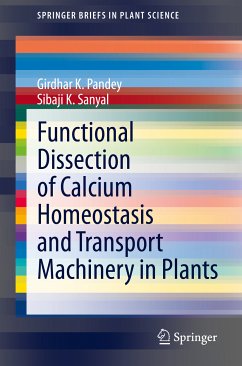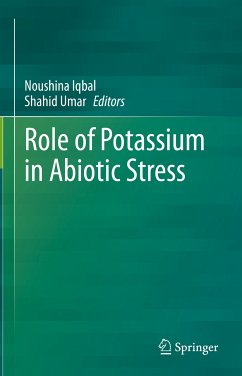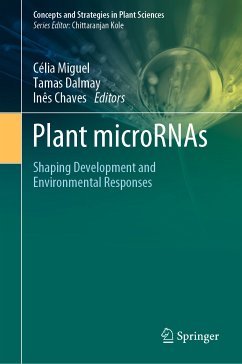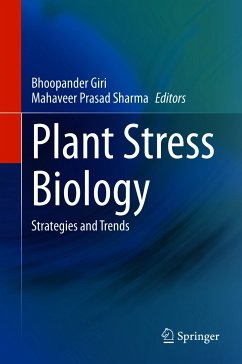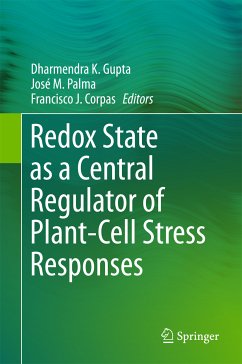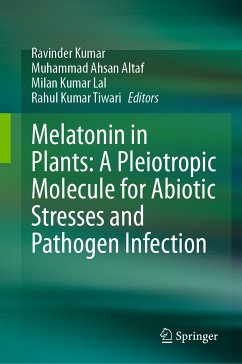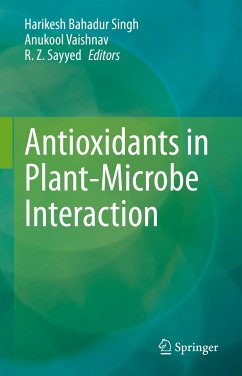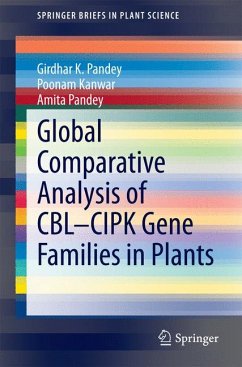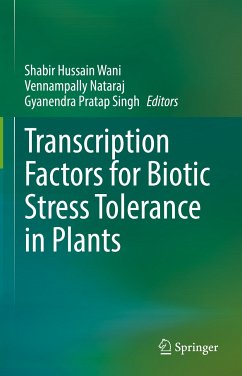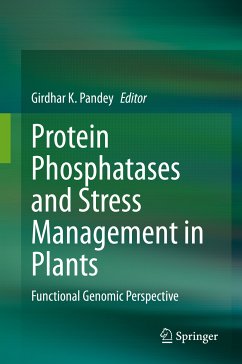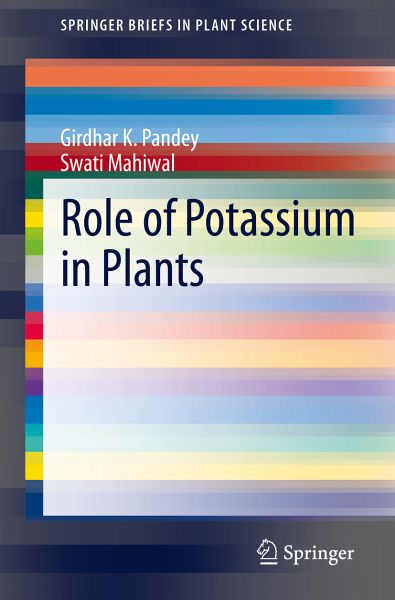
Role of Potassium in Plants (eBook, PDF)
Versandkostenfrei!
Sofort per Download lieferbar
40,95 €
inkl. MwSt.
Weitere Ausgaben:

PAYBACK Punkte
20 °P sammeln!
Potassium (K+) is an essential mineral macronutrient abundantly present in the cytosol which, unlike other macronutrients, is not metabolized and does not integrate into macromolecules. Compared to animal cells, K+ is more abundantly present in plant cells.Overall performance of the plant, and operation of metabolic machinery depends upon intracellular K+ homeostasis (K+ uptake and efflux) via K+ channels and transporters acting as mediators of cellular responses during plant development. Unlike animals, plants lack sodium/K+ exchangers; plant cells have developed unique transport systems for ...
Potassium (K+) is an essential mineral macronutrient abundantly present in the cytosol which, unlike other macronutrients, is not metabolized and does not integrate into macromolecules. Compared to animal cells, K+ is more abundantly present in plant cells.
Overall performance of the plant, and operation of metabolic machinery depends upon intracellular K+ homeostasis (K+ uptake and efflux) via K+ channels and transporters acting as mediators of cellular responses during plant development. Unlike animals, plants lack sodium/K+ exchangers; plant cells have developed unique transport systems for K+ accumulation and release. In Arabidopsis thaliana, 71 K+ channels and transporters have been identified and categorized into six families.
Plant adaptive responses to several abiotic and biotic stresses are mediated by regulation of intracellular K+ homeostasis. In this report, we highlight the role of K+ in abiotic and biotic stresses, features of channels and transporters responsible for its homeostasis along with its evolutionary relationship, perception and sensing mechanisms, and K+ deficiency triggering different signaling cascades.
Overall, this book covers the role of K+ in plants would be significantly helpful to research, academic community as well as students to understand the one of the major attributes of plant biology.
Overall performance of the plant, and operation of metabolic machinery depends upon intracellular K+ homeostasis (K+ uptake and efflux) via K+ channels and transporters acting as mediators of cellular responses during plant development. Unlike animals, plants lack sodium/K+ exchangers; plant cells have developed unique transport systems for K+ accumulation and release. In Arabidopsis thaliana, 71 K+ channels and transporters have been identified and categorized into six families.
Plant adaptive responses to several abiotic and biotic stresses are mediated by regulation of intracellular K+ homeostasis. In this report, we highlight the role of K+ in abiotic and biotic stresses, features of channels and transporters responsible for its homeostasis along with its evolutionary relationship, perception and sensing mechanisms, and K+ deficiency triggering different signaling cascades.
Overall, this book covers the role of K+ in plants would be significantly helpful to research, academic community as well as students to understand the one of the major attributes of plant biology.
Dieser Download kann aus rechtlichen Gründen nur mit Rechnungsadresse in A, B, BG, CY, CZ, D, DK, EW, E, FIN, F, GR, HR, H, IRL, I, LT, L, LR, M, NL, PL, P, R, S, SLO, SK ausgeliefert werden.



